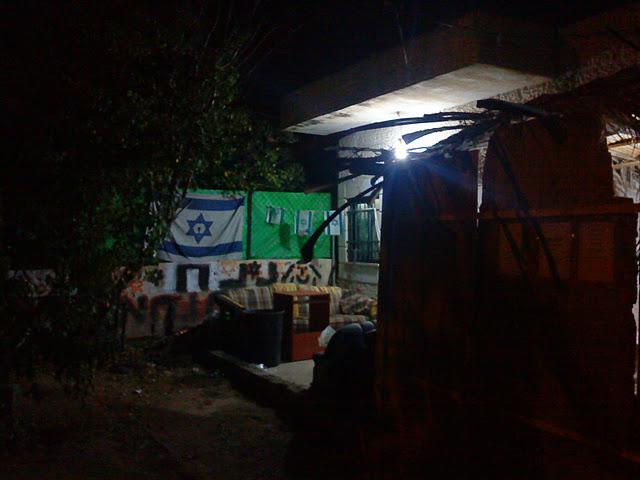Tag: Al Kurd family
-
Live updates from Sheikh Jarrah – Visit ISM’s Night Watch blog
14 December 2011 | International Solidarity Movement, West Bank ISM has been following the situation of the Al Kurd family from Sheikh Jarrah since 2009 and has kept a presence in the garden of their home. On December 4th Nabil Al Kurd and his mother, accompanied by international and Israeli activists went to the Court…
-
Sheikh Jarrah: Al Kurd family faces 30 day deadline
by Samar and Meriem 11 December 2011 | International Solidarity Movement, West Bank ISM has been following the situation of the Al Kurd family from Sheikh Jarrah since 2009 and has kept a presence in the garden of their home. The Al Kurd family is of five other families targeted by these evications. The Fawziya Al…
-
Settlers attempt to destroy Christmas tree following Palestinian celebration in Sheikh Jarrah
23 December 2009 On Wednesday 23 December at 11.30pm, as every other night, settlers began to circulate in the street between the occupied Gawi house and the half-occupied al-Kurd house in Sheikh Jarrah. After about an hour of general harassment of the Palestinian families living in the neighbourhood since 1956, the settlers increased their aggression…


